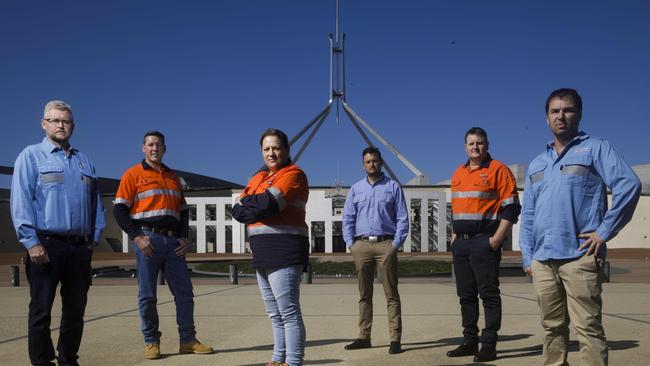Urgent talks over refinery rescue deal
The Morrison government faces pressure to accelerate a rescue package for Australia’s under-threat refiners.

The Morrison government faces pressure to accelerate a rescue package for Australia’s under-threat refiners as fears grow the nation’s three remaining plants could be forced to shut amid ongoing losses.
The Australian Workers’ Union and staff from Ampol and Viva Energy will hold talks in Canberra with federal Energy Minister Angus Taylor on Wednesday. Meetings were held with key crossbench senators Rex Patrick and Jacqui Lambie on Tuesday along with Madeleine King, the federal member for Brand in Western Australia, where BP plans to close its Kwinana refinery. AWU National Secretary Daniel Walton also met with Deputy Opposition Leader Richard Marles, whose electorate covers Viva’s Geelong refinery which also faces a decision over a looming shutdown.
Concerns are mounting that time is running out to safeguard the future of the three refineries — Viva’s Geelong plant, Ampol’s Lytton facility in Brisbane and ExxonMobil’s Altona in Melbourne — despite the federal government unveiling an assistance package for the industry including the introduction of a production payment based on their fuel security contribution to Australia.
“There’s a strong level of support to make sure we don’t see any further closures but time is against us and that’s a concern,” Mr Walton told The Australian. “It’s not about getting a little sugar hit to the refineries. It’s about getting a meaningful solution in place that gives them investment certainty for a decade to come.”
Mr Taylor continues to hold weekly meetings with the refinery operators and described talks as positive.
“The negotiations with the refineries have been positive and the government has already committed to prioritising the development of the production payment,” Mr Taylor said.
“The Minister looks forward to meeting with the AWU later in the week to discuss the government’s fuel security package, the future of the refining sector and the Australian jobs that rely on it.”
The AWU had called for the government to underwrite storage capacity, guarantee maintenance of its remaining refineries, boost the production of diesel and lift the amount of local supplies used for crude production.





To join the conversation, please log in. Don't have an account? Register
Join the conversation, you are commenting as Logout